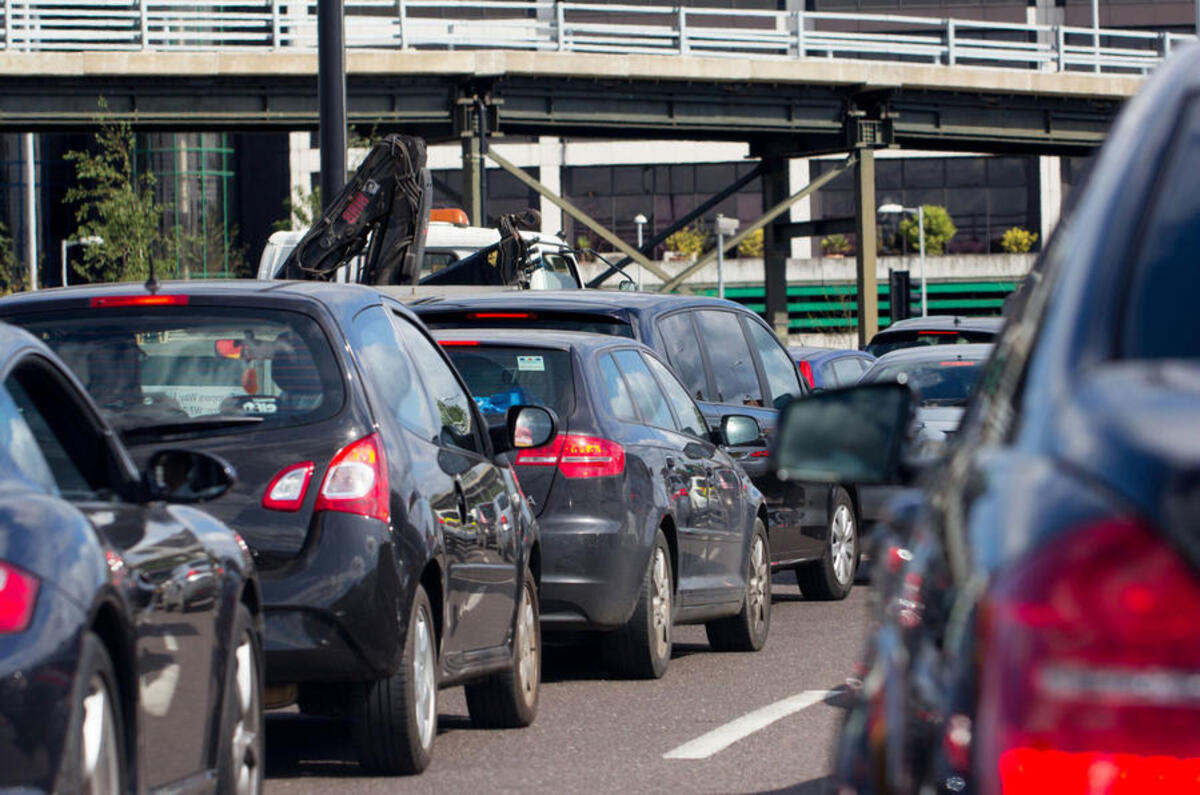The government's increase in taxation of diesel-powered vehicles, which has come into force with the new tax year that starts today, affects every new diesel car on sale.
First announced in Chancellor Philip Hammond's Autumn Budget last year, the changes push new diesel cars registered after 1 April 2018 up a tax band and see diesel-powered company car drivers faced with a benefit-in-kind supplement tax increase from 3% to 4%.
Vehicles that conform to the Euro 6d standard of air quality are exempt from the new diesel VED supplement, but according to the government-backed Low Carbon Vehicle Partnership, "there are currently no new diesel cars on sale that meet this stricter standard".
All new diesel-powered cars will have to comply with Euro 6d from 2020; the cleanest new diesel cars on sale currently conform to Euro 6c, Europe's present required level.
Triumph to disaster: the rise and fall of diesel
The VED increases and company car rate changes don't apply to diesel vehicles currently on the road. Those cars will remain in their current tax bands.
Opinion: The government is wrong to penalise diesel drivers
The 2018 rules come alongside the new Real Driving Emissions test that measures pollution levels of cars on the road, as opposed to in a laboratory as in the old NEDC testing system, and run alongside the lab-based Worldwide Harmonised Light Vehicle Test Procedue (WLTP). The on-road RDE tests will be used to validate the results of the WLTP exams, with two steps set for how close the results of the two tests must be aligned on emissions output.
The new emissions tests are broader in scope than the older NEDC tests, and include a big focus on NOx emissions. The second step, which the government is using as the basis for its tax hike, gives cars a 'conformity factor' of 50%. To ensure cars meet this conformity level, they will have to ensure cars fall well below the currently allowed NOx limits.
The process is more stringent than the old lab-based NEDC (New European Driving Cycle) system. Current diesel cars are only required by European law to conform to RDE step 1 standards, meaning the Budget's requirement for step two could affect even the very latest models. This essentially means the government is penalising models that don't conform to a 2020 regulation from April 2018.
Opinion: Diesel is dying - get over it
The UK's Society of Motor Manufacturers and Traders boss Mike Hawes stated that the changes were unfair back in autumn. He said: "It's unrealistic to think that we can fast-track the introduction of the next generation of clean diesel technology which takes years to develop, in just four months. This budget will also do nothing to remove the oldest, most polluting vehicles from our roads in the coming years.”
The new diesel tax hike, which Hammond said applies exclusively to cars, leaving van and lorry drivers unaffected, forms part of the government’s plans to fight Britain’s growing air quality problem, of which it labels diesel pollution a major contributor.
But Hawes believes that targeting the newest diesels is the wrong method to take. He said: "We know the government wanted to raise revenue to pay for the air quality plan. We recognise that they didn’t want to penalise existing diesel-car owners who bought their cars in good faith. But we want to encourage the latest technology”, referring to new diesel cars on the market. He added that there was “nothing in the budget about getting older vehicles off the road,” which are the worst offenders in the quest for better air quality".




Join the debate
Add your comment
Not all new Diesels are the same
Its worth taking a look at independent real world testing of cars where you can see some of the latest diesels are significantly better in both NoX and particulates than most petrol cars on the road. See http://equaindex.com/equa-air-quality-index/.
Surely it would be best to treat all vehicles in the same way based on the same criteria and then everyone can make intelligent choices on the right vehicle for them without this tax driven sales pendulum going from one extreme to another.
Diesel Engines
Call me a synic but the political class can smell the opportunity to get more tax revenue through using the "general populations gullibilty" on a subject that 98% of us have no real knowledge of.We all look for the biggest bang for the buck and in motor vehicles diesel is tops.I take no heed of the WHO or any other world committee, simply because they all have political agendas funded by governments.Both petrol and diesel are incredibly more efficent than they were 5-10years ago due to turbo charging smaller petrol engines and technical development of fuel burn in diesels.Everthing emits a toxic gas,humans especially,so why target motor vehicles?My car needs 98RON fuel and gives cleaner and more efficent performance compared to an ethanol blend or 91RON unleaded petrol.I get about 30% better mileage from 98 RON than 91RON, so the question is,which option produces more emissons?
Deisel Hybrid.....?!?
As far as I’m aware there isn’t a Car like this?, is there a reason why?...
Peter Cavellini wrote:
Volvo V60 D6, and I am fairly sure Peugeot/Citroen make diesel hybrids, my question is, why are there no LPG plug in hybrids?